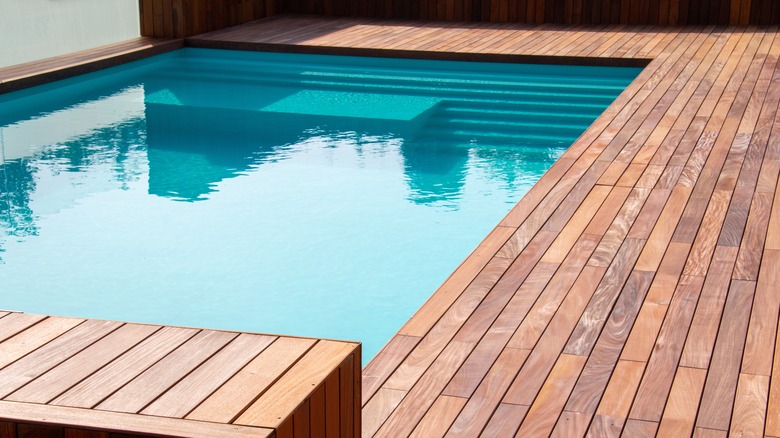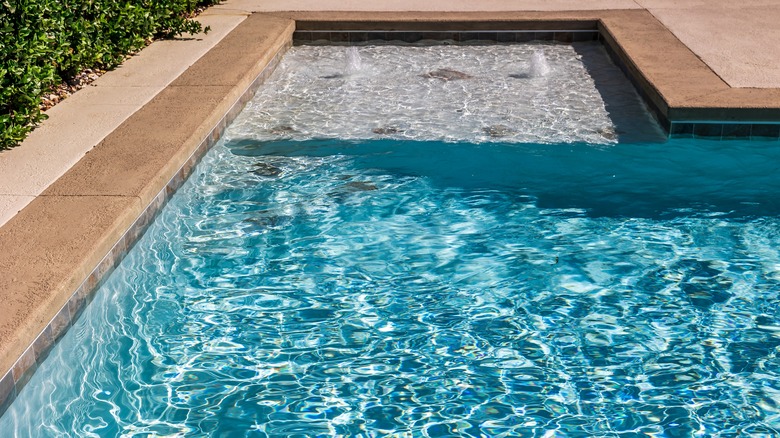The Difference Between Saltwater And Regular Pools
Jumping in the pool on a hot summer day is one of the better feelings in the world. There's nothing quite like the smell of sunscreen in the air and the feel of sun-dried water droplets on your skin. Swimming pools have been found to increase home value by upwards of 7%, with 8% of residences in the U.S. owning one (via Ruby Home). The real estate company also reports that buyer demand for swimming pools only continues to increase.
When deciding to install a pool on your property, you may be considering a few things, such as the size, whether or not it should be in-ground or above-ground, and all the different accessories you will need. While all of these deliberations are important, you should also consider saltwater versus traditional chlorine pools. Coogan's Design-build finds that homeowners and businesses are preferring saltwater pools more frequently. But what exactly separates a saltwater system from a chlorine-based one, and which is the best fit for you?
Chlorine-based pools vs. saltwater
One of the biggest misconceptions about saltwater pools is that they eliminate the use of chlorine. Saltwater pools still use chlorine; they just use a lot less and create it from salt. In the process of electrolysis, it passes salt through electronically charged plates, releasing a chlorine gas that cleanses the water. This differs from traditional pools in that one has to manually add chlorine in the form of liquid, powder, or tablets to the water about once every two weeks. Saltwater reservoirs still have a chlorine system, but it will maintain its levels by itself and require little effort on your part.
Converting your pool to a saltwater one only requires a salt chlorine generator and pool salt. To put into perspective how much salt these pools require, a 20,000-gallon basin with 500 Ppm salt levels will need around 501 pounds of salt. That sounds like a lot, but these pools have nowhere near the amount of salt as ocean water and are estimated to have 1/10 of the volume, which is about the same as what our tears hold. Overall the most significant difference between the two kinds of pools is how they produce chlorine to purify water. Saltwater pools are said to be less harsh in their chemical release, providing softer water against the skin and having a less prominent chemical scent.
Which pool system is right for you?
Like everything in life, there are pros and cons to making one choice over the other. Many choose saltwater pools for the fact that they are found to be less irritating to the eyes, skin, and hair. People even say you can open your eyes underwater without it being harmful. There is also less manual handling of chemicals, thus saving you time. While converting your saltwater pool may be more expensive to start, estimated between $1,500 and $2,500, it can be cheaper in the long run. Salt is more affordable than chlorine, but keep in mind that your saltwater generator will need to be running 24/7, which can impact your energy bill.
Chlorine pools are typically less expensive upfront and are non-corrosive. The salt in a saltwater pool can erode stone and metal, so anything in the pool, like ladders and lighting or items consistently splashed with saltwater, such as outdoor furniture or stone paths, will be corroded over time. Investing in amenities that can resist salt is part of that more expensive initial cost when choosing a saltwater system; however, it is hard to put a price on comfort, which seems to be the driving force for choosing a saltwater pool.


